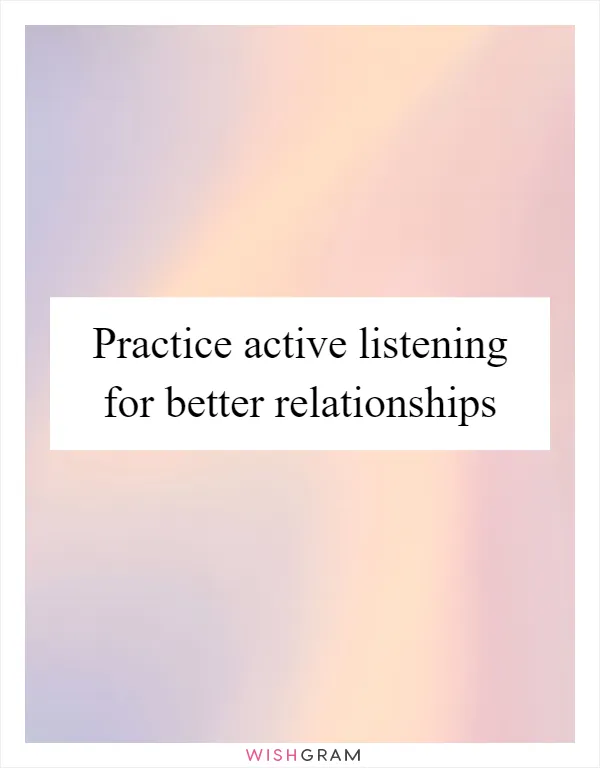Practice active listening for better relationships
Practice Active Listening for Better Relationships
In the realm of self-improvement, one often focuses on personal growth and development. However, it is crucial to recognize that relationships play a significant role in our lives and contribute to our overall well-being. Whether it's with friends, family, or colleagues, fostering healthy relationships requires effort and effective communication. One essential skill that can greatly enhance our relationships is active listening.
Active listening is a powerful tool that allows us to truly understand and connect with others. It involves giving our full attention to the speaker, both verbally and non-verbally, without interrupting or judging. By practicing active listening, we create an environment of trust and empathy, which strengthens our relationships and promotes personal growth.
To begin practicing active listening, it is important to eliminate distractions and be fully present in the conversation. Put away your phone, turn off the TV, and give the speaker your undivided attention. Maintain eye contact and use non-verbal cues such as nodding or smiling to show that you are engaged and interested in what they are saying.
Another crucial aspect of active listening is to avoid interrupting or formulating responses while the speaker is talking. Instead, focus on understanding their perspective and feelings. This means suspending judgment and truly listening to their words, tone, and body language. By doing so, you demonstrate respect and validate their experiences, which strengthens the bond between you.
Furthermore, active listening involves asking open-ended questions to encourage the speaker to elaborate on their thoughts and feelings. This not only shows your genuine interest but also helps you gain a deeper understanding of their perspective. By asking questions, you demonstrate that you value their opinion and are willing to invest time and effort into the relationship.
Additionally, paraphrasing and summarizing what the speaker has said is an effective way to ensure that you have understood their message correctly. This technique not only clarifies any potential misunderstandings but also shows the speaker that you are actively engaged in the conversation. It conveys that you are making an effort to comprehend their viewpoint, fostering a sense of trust and mutual understanding.
Practicing active listening also involves being aware of your own biases and preconceived notions. It is essential to approach conversations with an open mind and be willing to challenge your own beliefs. By doing so, you create an environment that encourages honest and authentic communication, allowing for personal growth and the strengthening of relationships.
